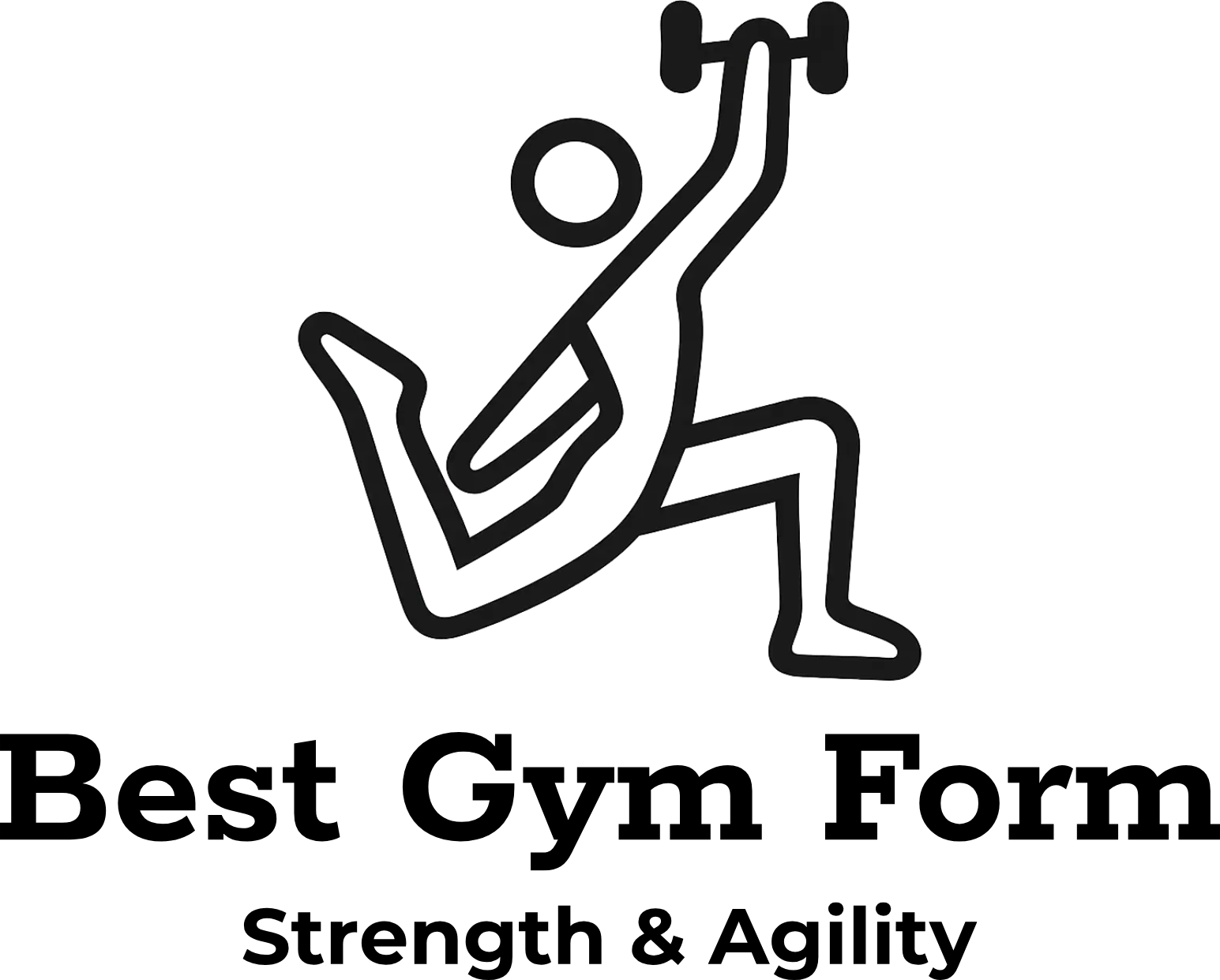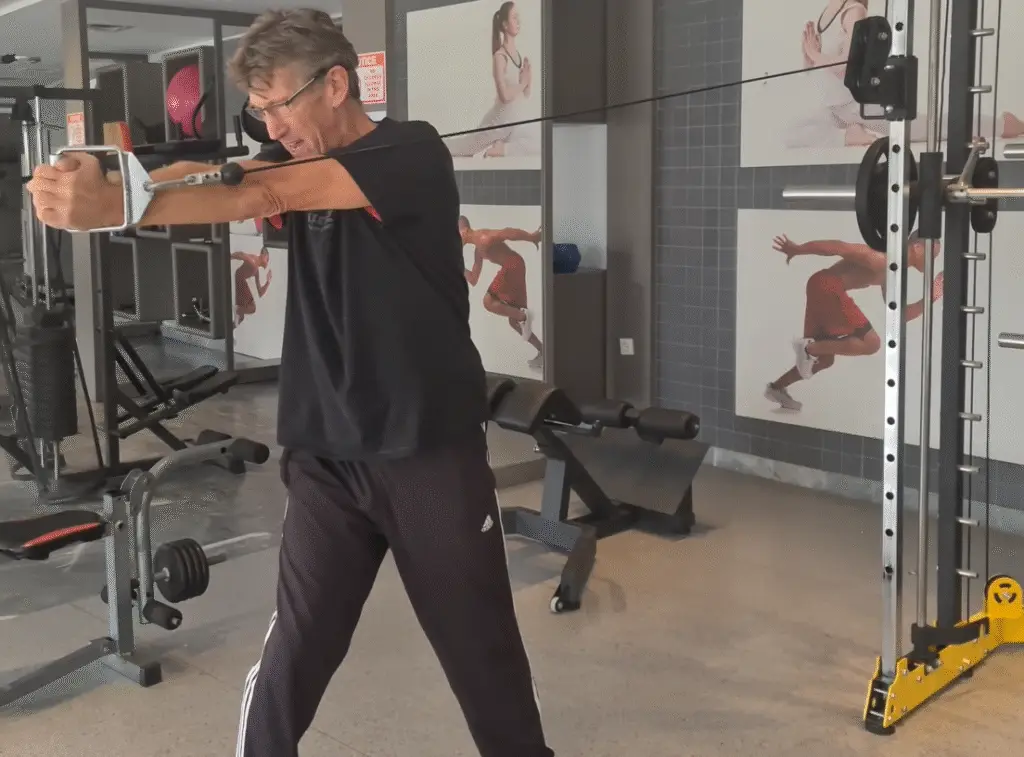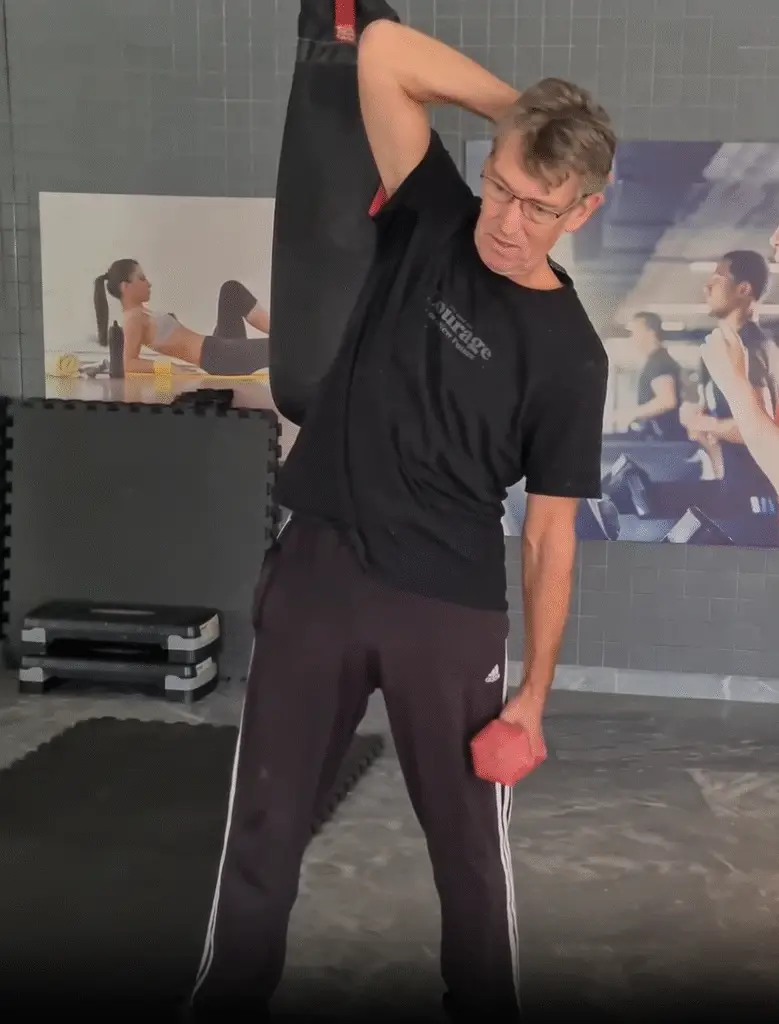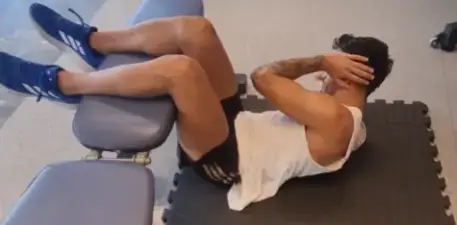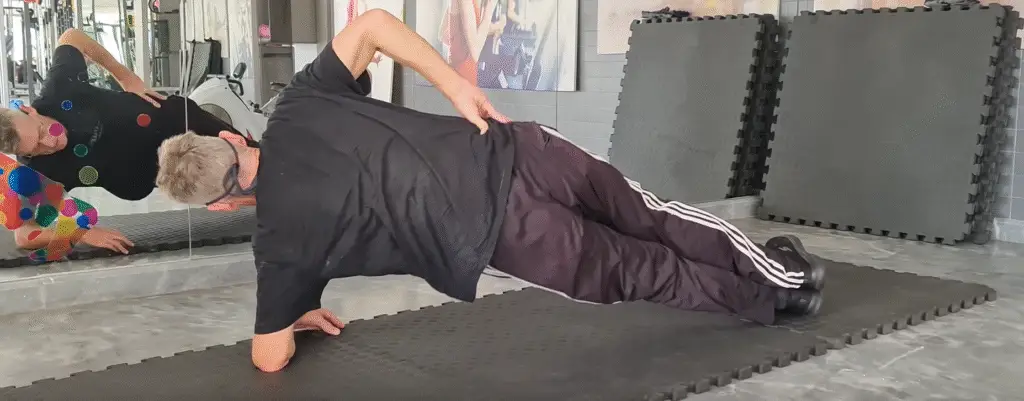All about the Cable Oblique Twist
(Back)
BENEFITS & MUSCLES WORKED: Obliques, Core, Shoulders, Upper Back, and a little Arms.
Watch: my Cable Oblique Twist video
START POSITION: This is a tricky exercise to perfect, and it is often wrongly taught. The height setting of the cable is essential, as is the position of the feet, head, arms, and legs.
NOTES: Difficulty Rating: 75%
Once the technique is mastered, the Cable Oblique Twist will bring enormous benefits.
Including the Cable Oblique Twist into your ABS workout will accelerate the attainment of a 6-pack. Why? Because the oblique muscles are relatively large, they form a single mass on both sides of the body, extending from just under the chest to the waist. The obliques are often overlooked when people become overly focused on developing their central abdominal muscles. Larger muscle mass in your body will accelerate fat loss and help you get your body in shape. And yes! More muscle in one part of your body will help to burn off excess flab in other parts of your body! This is why it is essential to work hard on larger muscles such as the Quads, Glutes, and Chest.
Professional boxers must work very hard on their Obliques because they effectively form thick body armour around the sides of the rib cage. A low, hooked punch to the side of your rib cage when your obliques are underdeveloped will easily break a rib. Beginners should use low weights and high reps until they are confident that the technique has been mastered. I always recommend this approach for all exercises in the Mojoh Method. Add weights later as required.
The key to achieving the correct stance for the Cable Oblique Twist is to find the best position for your feet – this means that during the entire twist motion, your feet remain planted in the same position and do not move. It is best to keep the legs relatively straight but not to lock out the knees. Another tip for maintaining correct form is to fix your eyes on the end of the cable grip (in your hands) and follow it by twisting your body and turning your head simultaneously. At the outside edge of the motion, the cable will make contact with your arm quite tightly – this is normal. Note that the grip handle is held vertically.
Control the movement firmly as you swing back and lower the weight back down – if it crashes back to its stack, then you need to shuffle sideways a little more. If the weights crash at the top of the machine when your arms are fully extended, then you need to shuffle back slightly toward the machine.
You can focus on refining this technique to have a low weight and add a very short pause to the outward position. Then you will feel the obliques working hard, and it will feel pretty good. But get the technique wrong and you will not only look like a total plonker, but you risk hurting yourself badly. Please take it slow and don’t rush to be the next.
Here is a great video that describes the form brilliantly – Technique for Cable Oblique Twist.
A few more great exercises for the Obliques:
10 Top Tips for doing the Cable Oblique Twist with perfect form:
- Stand with your side to the cable machine, feet shoulder-width apart
- Grab the handle with both hands
- Pull the handle towards your opposite shoulder, twisting your torso while keeping your arms straight
- Ensure that your core remains engaged and your back stays straight throughout the movement
- Slowly return to the starting position and repeat on the other side
- Avoid twisting with your arms instead of your torso, rounding your back, or using momentum to swing the weight
- Adjust the cable height to target different muscles
- To work different parts of your core, you can adjust the cable’s height. For the obliques, set the cable to the highest setting. This will target the muscles along the sides of your torso
- To focus more on your lower abdominals, set the cable lower than the horizontal. Exercises that target the lower abdominals tend to be more challenging than those that target the obliques
- To work on the core as a whole, for example, if you are short on time, set the cable height so it is horizontal
Finally, if martial arts or boxing is your thing, then I suggest that you regularly do this top 5 mix for boxers:
Cable Oblique Twist (high & low setting)
Dumbbell Sidebends (for obliques)
Single Arm Cable Press
Bicycle Crunches
Bench Crunches & Bench Crossover Crunches
